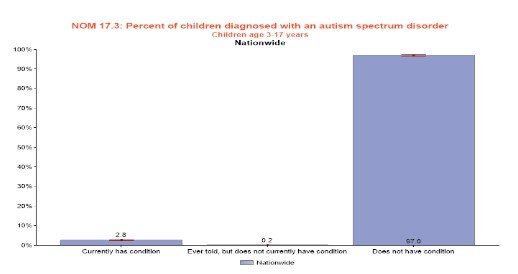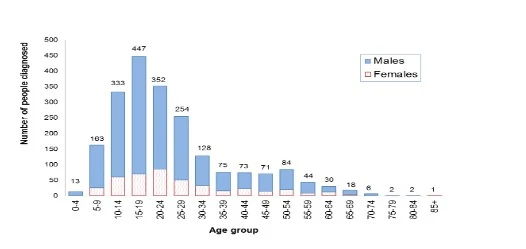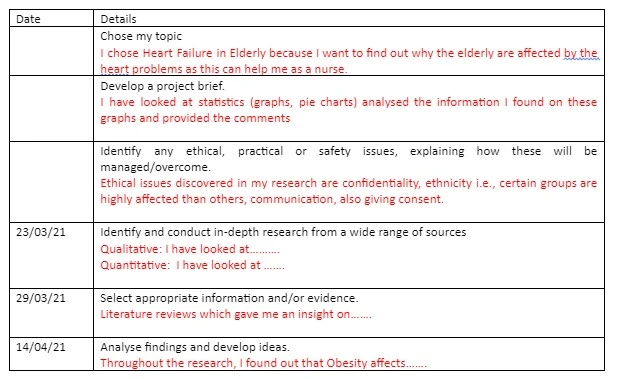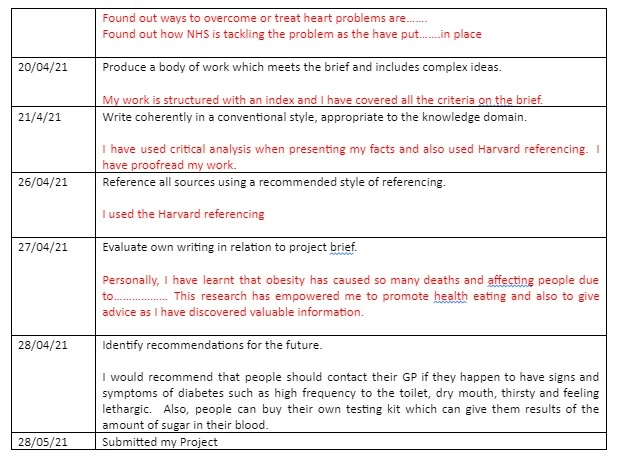Expressions of Gratitude: Acknowledgments in Personal and Professional Endeavors
Acknowledgement
I would like to acknowledge my family as they have been supportive while doing this course and also my uncle who died due to COVID-19 as a nurse. I want to acknowledge my work colleagues/manager who allowed me to be swapping my shifts to attend classes. To my husband/wife/boyfriend/girlfriend Sue Adams/Babatunde Okoro who financially/morally supported me. I would like to say thank you.
Introduction
Autism spectrum disorder is an illness that affects the brain development and impacts how people recognize, as well as interact or associate with others by triggering communication and social interaction challenges (Day et al., 2020). This condition has some serious long-term effects on individuals like making it quite challenging to make friends and socialise, increasing the likelihood of an individual living a lonely life and being sensitive and anxious when they are among other people, even showing behavioural issues during such situations (Day et al., 2020). I chose this topic because it is mental health area that is linked to my health science course. Understanding the long-term effects of Autism in children and adults is important because through this research, the training of care and health professionals can focus on offering better support to individuals living with autism and other learning disabilities (Day et al., 2020). This is why the Nursing and Midwifery Council, NMC, welcomes such research in the Department of Social and Health Care (Simpson, 2020) because like all other people, autistic individuals and those with learning disabilities, as well as their carers and families, have equal rights for everything, including health or education (Simpson, 2020). Additionally, for those pursuing related research, healthcare dissertation help can be invaluable in navigating complex topics and ensuring thorough analysis.

Project brief
This research is based on understanding the issues surrounding autism and different literatures have been searched and findings were critically analysed and reported in this report, particularly on the long- and short-term effects of autism and the government policies that have been established to help autistic individuals and those with learning disabilities to lead a normal life like the rest of non-autistic people. The research has established that individuals with autism usually experience depression, familial discord, social isolation, as well as difficulties in developing and maintaining relationships and friendships (Simonoff et al., 2020). The research found that autistic individuals find difficulty empathizing and relating with other individuals and may find it challenging living independently and while a few can live by themselves, they may experience victimisation, sleep problems, employment issues and bullying (Simonoff et al., 2020).
It has been discovered that people or adults suffering from autism are also affected by attention-deficit hyperactivity disorder, non-affective psychosis, suicidal ideations, bipolar disorder and depression (Rydzewska et al., 2018). According to Rydzewska et al. (2018), 19.2% of autistic adults also have intellectual disabilities. Vivanti and Stahmer (2018) proposes early intervention as a means and opportunity of helping individuals with autism. These individuals propose early interventions that are sustainable and effective like training service providers to be able to provide evidence-based type of interventions to autistic individuals, the use of parent-mediated, low intensity publicly funded programs and the use of paraprofessionals with less supervision to act as behaviour technicians, making interventions affordable because such technicians take shorter time in training (Vivanti and Stahmer, 2018)
Making these interventions affordable as well as providing under-resourced communities with the necessary resources and trained professionals and paraprofessionals to provide interventions makes these services accessible to autistic individuals at the community level (Divan et al., 2021). Another strategy suggested by Vivanti and Stahmer (2018) is empowering parents using effective strategies to enable them to support autistic children through development and learning, a strategy that helps improve the wellbeing of both the parents and the autistic children.
The government of UK put in place statutory guidance for the NHS and local authorities to support individuals suffering from autism (Social Care, Local Government and Care Partnerships, Mental Health and Disability and Dementia, 2015). This guidance first started with the creation of the Autism Act 2009 to ensure that autistic individuals’ needs are taken care of and met (Social Care, Local Government and Care Partnerships, Mental Health and Disability and Dementia, 2015). Other supporting strategies was the formation of the Fulfilling and Rewarding Lives for autistic adults in 2010 and Think Autism 2014 that guide the NHS and local authorities on how to provide health service and social care functions to autistic individuals (Social Care, Local Government and Care Partnerships, Mental Health and Disability and Dementia, 2015)
The ethical, practical or safety issues and how these will be managed/overcome
Autistic individuals or their care givers may not be so willing to talk about how their children or the autistic individuals suffer because of the condition or their negative experiences and how they are looked at in society (The British Psychological Society and The Royal College of Psychiatrists 2012). The main challenge will in fact be, talking to autistic individuals because of the difficulty in communicating or even being social, especially to strangers. Nonetheless, the researcher will approach their caregivers and ask for their informed consent to discuss about the long-term effects they have experienced because of the autism. The researcher will promise to maintain a high confidentiality level in terms of keeping the names of the participants in the study hidden and not realising personal information about autistic individuals to unwanted parties. Those not willing to participate in the study or wanting to stop further participation in the study will also be allowed to withdraw to protect them from any form of discomfort and mental pain (The British Psychological Society and The Royal College of Psychiatrists 2012).
Government Policy on Autism Project Report
Autism spectrum disorder is a brain development disease that affects how an individual recognises and interacts with others, triggering social contact and communication difficulties. Small and repeated conduct habits are also included in the disorder. There are conditions similar to autism such as Asperger’s syndrome which was previously not known to be connected to autism.
Dig deeper into Personal Rights and Dignity in Care with our selection of articles.
The long-term effects of autism
Research has shown that individuals with autism often experience problems such as depressions, social isolation, familial discord, difficulty forming and maintaining friendships, difficulties relating and empathizing with other people, some have trouble living independently (Jordan and Collin, 2015). While others are able to live alone, they still experience sleep problem, victimisation and being bullied (Jordan and Collin, 2015). Others also experience employment problems, especially because of the communication difficulty that affects their chances of getting jobs which require excellent communication skills (Jordan and Collin, 2015).
In adults, research shows that individuals with ASD usually find it hard making friends and often prefer spending time alone, leading to a mostly isolated life that increases the chances of developing depression (Rosen et al., 2021). According to Rosen et al. (2021), adults with autism find it difficult to follow the normal social rules like talking or having a conversation with other people like non-autistic people do. These individuals often also show being highly sensitive and get upset easily when they are touched by another person. They do not like being touched or their things being touched or moved from where they put it, otherwise they become very irritated (Rosen et al., 2021). According to Weir, Allison and Baron‐Cohen (2020), individuals with autism get upset when things change or when the usual way or routine of doing things are altered. They experience speech problems and severe anxiety and often lack empathy towards sad situations or other people Allison and Baron‐Cohen (2020)., Allison and Baron‐Cohen (2020) note that adults with autism might experience behavioural issues that can be challenging when meeting strangers. They can act rudely or ignore individuals trying to be friendly to them (Allison and Baron‐Cohen. 2020).
General effects of autism
McManus et al. (2020) note that autistic individuals are characterised with a lifestyle that focuses on the routine in which the individual always follows regularly. An individual can be very upset if the routine changes (McManus et al., 2020). Additionally, these individuals may struggle to process information or knowledge and when they struggle to process knowledge or if there is a shift in their routine, challenging behaviour such as kicking, hitting, biting, self-injurious and violent can also happen (McManus et al., 2020). They may be really depressed and behave aggressively towards other people such as their care givers (McManus et al., 2020)

At my care, I had a client who was diagnosed with autism at age 2. Working with this client I grew to understand her personality really well. She had a routine that I had to follow very strictly. I worked for her in the mornings before she went to school and evening after school. Some mornings, she was filled with energy, excitement, and full of ideas, however, in the afternoons the client would be tied and overworked. Every time she met new people; she would get really anxious, scared, worried. Or when she had school performances, she would practice all week to get it perfect. She didn’t like the crowded place as she complained about noisy parties and gatherings.
“Autism is a neurological disorder that can trigger a wide variety of problems with how an individual interacts and communicates with others (Birch, 2020). There are different names used such as Autism Spectrum Disorder (ASD), Autism Spectrum Disease (ASC), Asperger Syndrome or Asperger's, to describe autism and associated disorders (Birch, 2020). According to a healthy London partnership (2021), “it believed that 1 in 10 people are on the spectrum” (A Healthy London partnership, 2021). However, the precise amount is not known. It’s generally known to believe that both environmental and genetic factors play a role”.
Children diagnosed with autism nationwide

Figure 2 above: National Outcome Measure, it has been found that at least 17.3% of children between the ages of 3 and 17 are diagnosed with ASD (Data Resource Centre for Child and Adolescent Health, 2017)
The age most effected of ASD

Figure 3: From this figure, it is evident that the age that is most impacted with ASD is the youth of between 15 years old and 19 years old (Somerset County Council, 2021). The figure also shows that males are most affected by the condition. The figure shows just how common and worse the situation is for young individuals diagnosed with ASD (Somerset County Council, 2021).
Government policy relating to autism
The government is raising more awareness and knowledge about autism among frontline professionals. This helps benefits people with autism to achieve some rights as everyone else. (The autism act 2009)- “An act to provide for the fulfilment of the needs of individuals with autism spectrum disorders and for similar purposes.” the national autistic society has added some changes to benefits people with an autism spectrum disorder. Due to the act, almost every council provides an adult screening process and a clear lead to autism. Moreover, it means that more than 10 years ago no autistic person had the right to evaluate social services, which was impossible for many autistic people to access that basic right.
The UK government went ahead in 2010 to produce its first England Autism strategy known as Fulfilling and Rewarding Lives (Parkin et al., 2016). Parkin et al. (2016) note that about 1% of individuals living in England are autistic, that is around 500,000 people. This was meant to act as a statutory guidance for the NHS and local authorities to support the implementation of service provision strategies, and consisted of recommendations and duties on issues like autism diagnosis or identification and service provision at the local level (Parkin et al., 2016). In 2014, this strategy was updated and became to be known as Think Autism, setting a fresh or new focus on several key areas such as building or developing communities through increased awareness creation concerning autism, increasing innovation in the provision of services, as well as providing autistic individuals with integrated care (Parkin et al., 2016). The revised statutory policies and Think Autism recommendations and duties for Government departments and service providers in areas such as education services, transport, criminal justice, welfare and employment (Parkin et al., 2016).
Recent legislation like the 2014 Care Act also requires all staff conducting autism assessment to go through appropriate training to be able to make the right assessment that can help in the diagnosis and service provision for autistic individuals (Parkin et al., 2016). Additionally, the 2014 Children and Families Act also supports individuals with disability and educational needs (Parkin et al., 2016). The legislation ensures that individuals with autism receive quality education, social and health care like other non-autistic and non-disabled individuals (Parkin et al., 2016). These policies emphasise that health is devolved and that all administration should set their policies that ensure that the basic principles highlighted by the legislations are adhered to, to ensure that individuals with autism are cared for sufficiently and allowed to live a normal life like other people in society who have no disability or autism (Parkin et al., 2016).
Conclusion
This report has highlighted what autism is, indicating that this is a brain development condition that affects how victims recognise, as well as interact or associate with others by starting a communication and social interaction challenges. The NMC requirements that individuals with autism and learning disabilities and their cares, as well as families have equal rights for everything, including health or education has also been captured in the report. It is highlighted that individuals with autism often experience depression, social isolation, familial discord, difficulty forming and maintaining friendships, difficulties relating and empathizing with other people, some have trouble living independently. It is highlighted that while others are able to live alone, they still experience sleep problem, victimisation and being bullied. Others also experience employment problems, especially because of the communication difficulty that affects their chances of getting jobs which require excellent communication skills. Policies such as the 2014 are Act and the 2014 Children and Families Act protect these individuals by ensuring that they have equal rights and access the required standards of health care and education as normal individuals.

Dig deeper into Exploring Virtual Platforms in Mental Health with our selection of articles.
Recommendations for the future
The government should come up with further measures to train individuals with autism in communication and social interaction to make their lives less lonely.
Schools, health facilities and work places should be made more inclusive by putting in place trained personnel to help individuals with autism and to provide these people with appropriate items that can make their lives in these places less uncomfortable, for instance, providing them with communication equipment.
References
A Healthy London Partnership, 2017. Autism Spectrum Disorders toolkit. Child and Adolescent Health Measurement Initiative. 2016-2017 National Survey of Children’s Health (NSCH) data query. Data Resource Centre for Child and Adolescent Health supported by the U.S. Department of Health and Human Services, Health Resources and Services Administration (HRSA), Maternal and Child Health Bureau (MCHB). Retrieved [27/5/2021] from
[www.childhealthdata.org].https://www.healthylondon.org/resource/primary-care-children-young-peoples-toolkit/send-and-community-paediatrics/autism-spectrum-disorders-toolkit/ [Accessed 27th May 2021]
Birch, N., 2020. This Graphic Shows What the Autism Spectrum Really Looks Like. https://themighty.com/2020/03/autism-spectrum-wheel/ [27th May 2021]
Day, T.C., McNaughton, K.A., Naples, A.J. and McPartland, J.C., 2020. Self-reported social impairments predict depressive disorder in adults with autism spectrum disorder. Autism, 24(2), pp.297-306.
Data Resource Centre for Child and Adolescent Health, 2017. Child and Adolescent Health Measurement Initiative. 2016-2017 National Survey of Children’s Health (NSCH) data query. Data Resource Centre for Child and Adolescent Health supported by the U.S. Department of Health and Human Services, Health Resources and Services Administration (HRSA), Maternal and Child Health Bureau (MCHB). www.childhealthdata.org [Accessed 27th May 2021]
Divan, G., Bhavnani, S., Leadbitter, K., Ellis, C., Dasgupta, J., Abubakar, A., Elsabbagh, M., Hamdani, S.U., Servili, C., Patel, V. and Green, J., 2021. Annual Research Review: Achieving universal health coverage for young children with autism spectrum disorder in low‐and middle‐income countries: a review of reviews. Journal of Child Psychology and Psychiatry, 62(5), pp.514-535.
Jordan, R., and Collin, G., 2015. What's the point of the 'autism' label? https://thepsychologist.bps.org.uk/volume-28/march-2015/whats-point-autism-label [Accessed 27th May 2021]
McManus, S., Bebbington, P.E., Jenkins, R., Morgan, Z., Brown, L., Collinson, D. and Brugha, T., 2020. Data resource profile: Adult Psychiatric Morbidity Survey (APMS). International journal of epidemiology, 49(2), pp.361-362e.
Parkin, E., Bate, A., Long, R., Gheera, M., Powell, A. and Bellis, A., 2016. Autism–overview of UK policy and services. Briefing paper.
Rydzewska, E., Hughes-McCormack, L.A., Gillberg, C., Henderson, A., MacIntyre, C., Rintoul, J. and Cooper, S.A., 2018. Prevalence of long-term health conditions in adults with autism: observational study of a whole country population. BMJ open, 8(8), p.e023945.
Rosen, N.E., Lord, C. and Volkmar, F.R., 2021. The Diagnosis of Autism: From Kanner to DSM-III to DSM-5 and Beyond. Journal of Autism and Developmental Disorders, pp.1-18.
Social Care, Local Government and Care Partnerships, Mental Health and Disability and Dementia, 2015. Statutory guidance for Local Authorities and NHS organisations to support implementation of the Adult Autism Strategy. https://assets.publishing.service.gov.uk/government/uploads/system/uploads/attachment_data/file/422338/autism-guidance.pdf [Accessed 27th, May 2021]
Somerset County Council, 2021. Autistic Spectrum Disorders. https://www.somersetintelligence.org.uk/autism.html [Accessed 27th May 2021]
Simonoff, E., Kent, R., Stringer, D., Lord, C., Briskman, J., Lukito, S., Pickles, A., Charman, T. and Baird, G., 2020. Trajectories in symptoms of autism and cognitive ability in autism from childhood to adult life: Findings from a longitudinal epidemiological cohort. Journal of the American Academy of Child & Adolescent Psychiatry, 59(12), pp.1342-1352.
The British Psychological Society and The Royal College of Psychiatrists 2012. Autism: the nice guideline on the management and support of children and young people on the autism spectrum https://www.nice.org.uk/guidance/cg170/evidence/autism-managment-of-autism-in-childrenand-young-people-full-guideline-248641453 [Accessed 27th May 2021]
Vivanti, G. and Stahmer, A., 2018. Early intervention for autism: Are we prioritizing feasibility at the expenses of effectiveness? A cautionary note.
Weir, E., Allison, C. and Baron‐Cohen, S., 2020. Identifying and managing autism in adults. Prescriber, 31(2), pp.12-16.
Research Diary
Maintain a record of project progress through all stages of research, development and completion.


- 24/7 Customer Support
- 100% Customer Satisfaction
- No Privacy Violation
- Quick Services
- Subject Experts



